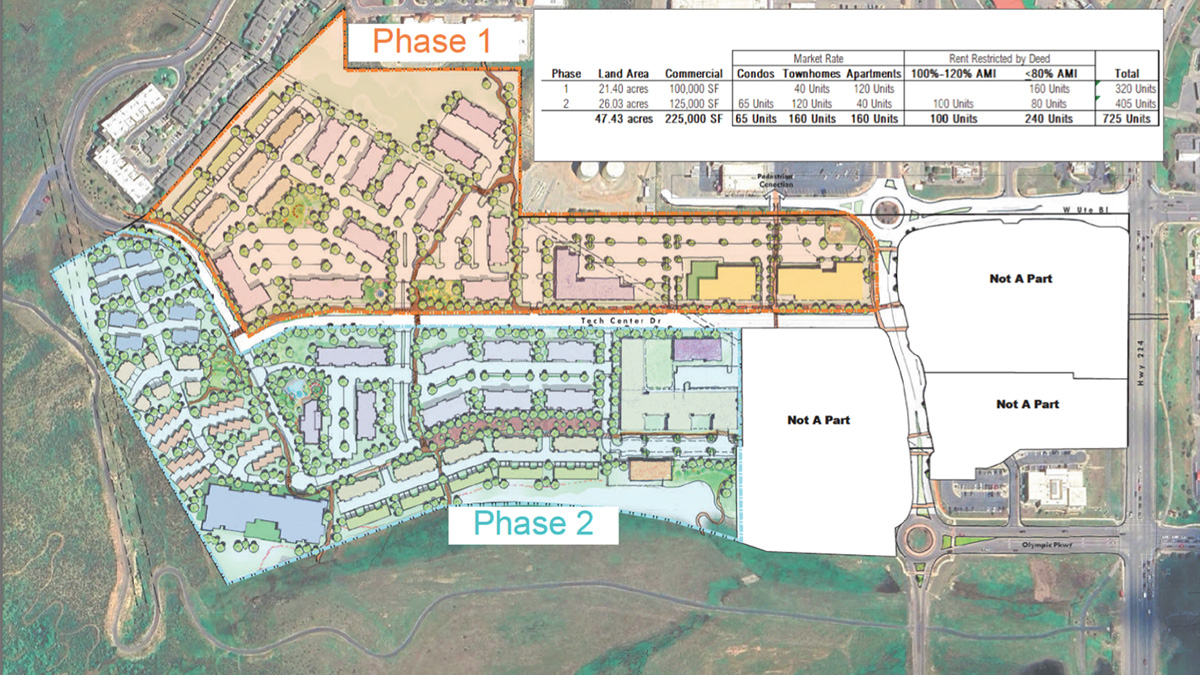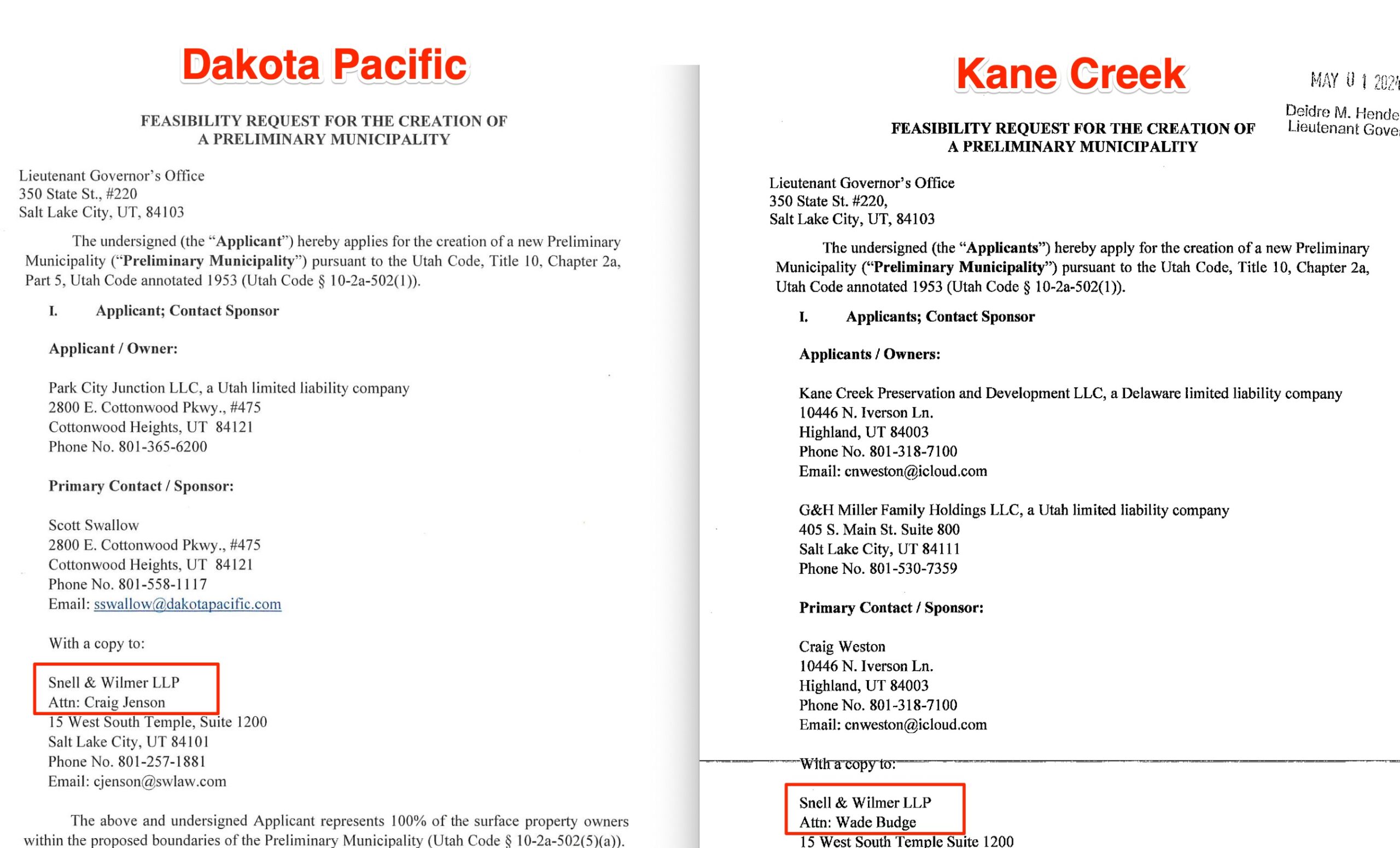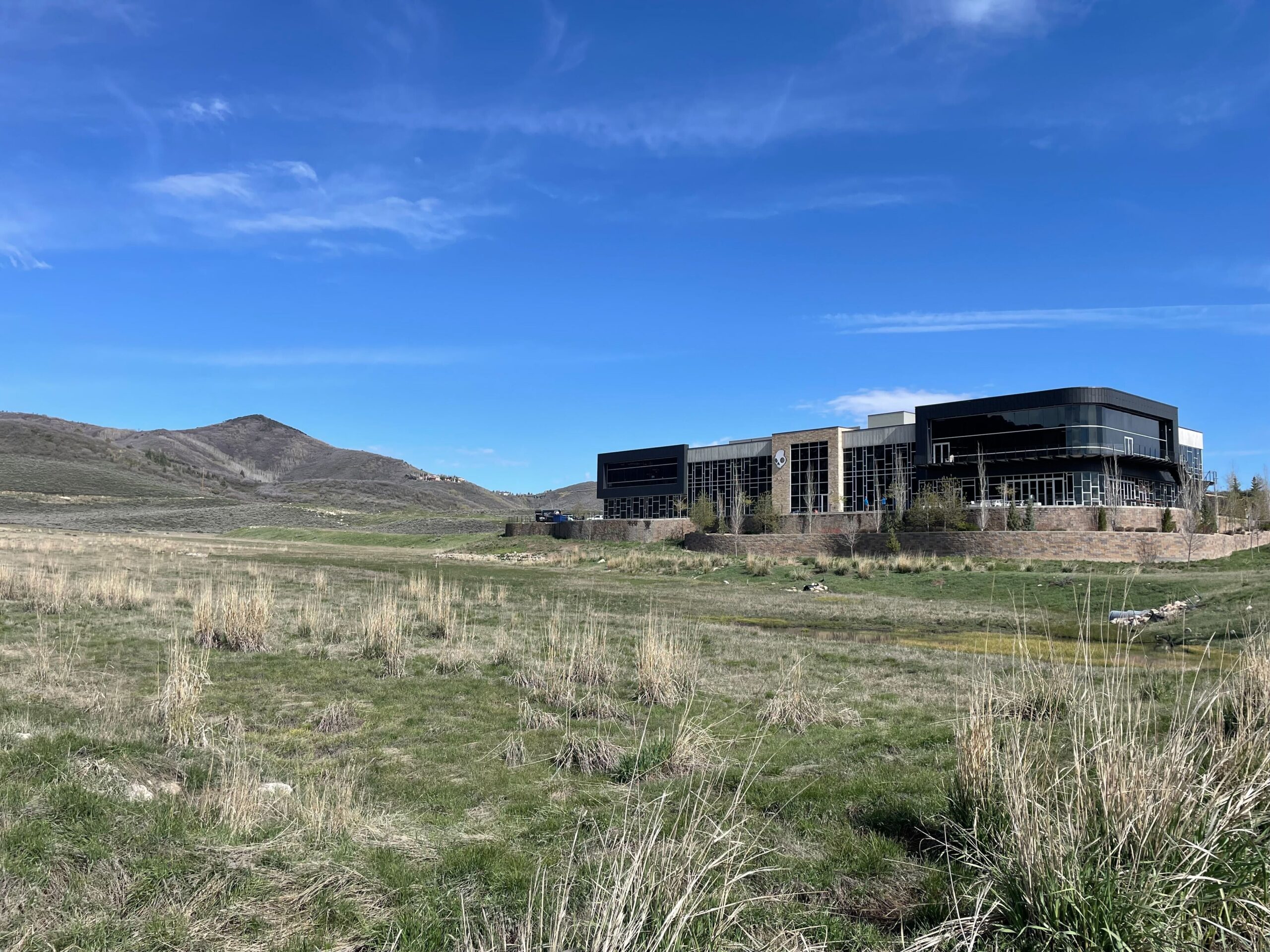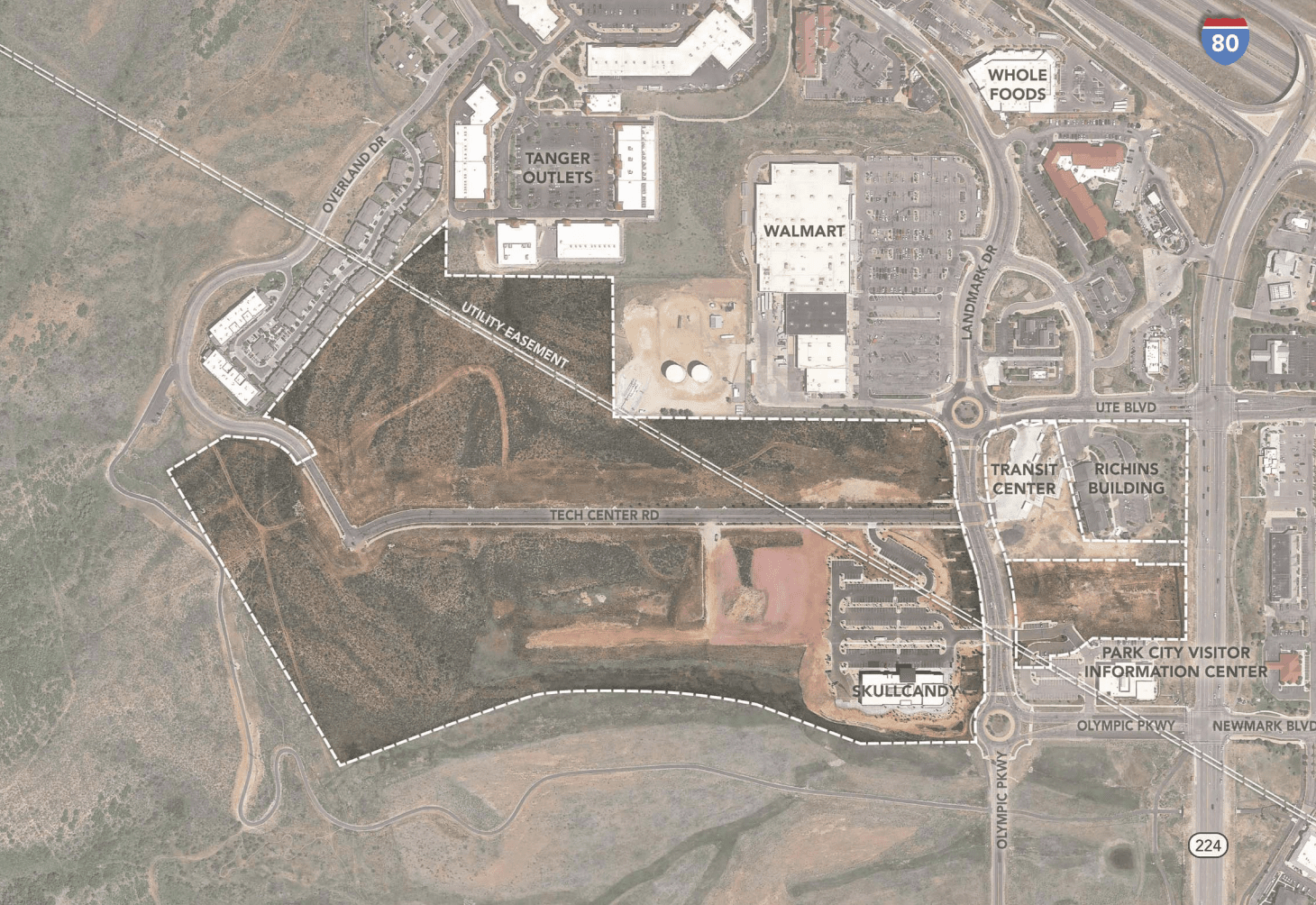Politics
State enables Dakota Pacific developers to turn Kimball Junction project into self-governed town

A map showing the proposed preliminary municipality, Park City Tech, on 47 acres in Kimball Junction. Photo: Utah Lieutenant Governor’s Office
If successful, a new town in Kimball Junction called Park City Tech would have the ability to create its own zoning and land use decisions, circumventing the current Summit County government authority.
PARK CITY, Utah — After the Summit County Council approved a deal in December with Dakota Pacific Real Estate to build more than 850 housing units in Kimball Junction, the developers have now taken initial steps to establish their own town. If successful, a new town called Park City Tech would have the ability to create its own zoning and land use decisions, circumventing the current Summit County government authority.
A petition, filed with the Lieutenant Governor’s office seeks to establish a preliminary municipality on 47 acres near the Skullcandy building in Kimball Junction. If approved, the preliminary municipality could incorporate as a new town.
Summit County Manager Shane Scott told TownLift that, while SB258 is still very new, his interpretation is that “if this preliminary municipality is allowed in this area, it would remove Summit County’s ability to maintain local control over the land. The new municipality could operate independently of the county.”
The filing follows the Summit County Council’s recent 4-1 approval of an amendment to a 2008 development agreement, allowing Dakota Pacific to construct an 725-unit residential neighborhood on the property. The proposed municipal boundaries do not include land where the county will develop 165 affordable housing units and other community benefits under a public-private partnership.
Background and legal framework
The petition leverages a new Utah law, S.B. 258, which took effect on May 1, 2024. This law, sponsored by now retired Sen. Curtis Bramble of Senate District 24, permits private landowners to form a preliminary municipality under specific conditions, including having land owned by three or fewer people, intending to house at least 100 residents, and reserving 10% of units for affordable housing within six years.
If approved, the bill states a preliminary municipality can transition into a fully incorporated town, with Dakota Pacific managing zoning and land use decisions until incorporation. The preliminary municipality’s governing board would include five members: The developer would appoint a Mayor and three council members and the county would appoint one member, the legislation reads.
If self-governance does not work out, the preliminary municipality can dissolve and return to being an unincorporated area of the county. In this case, the county would resume responsibility for providing services such as road maintenance, zoning, and public safety. The county would also inherit existing zoning decisions and housing developments approved during the self-governance period.
The Times Independent, covering Moab, Utah reports that SB258 has gained a lot of controversial traction in Grand County as many feel it’s tailor-made for the Kane Creek Preservation and Development project that faces widespread community opposition. On May 1, the day SB258 took effect, the Kane Creek developers officially applied to the Lt. Governor’s office to become a preliminary municipality.
The law firm Snell & Wilmer LLP is listed on the request for feasibility for both projects with near identical application documents.
Snell & Wilmer, along with Wade Budge and Bruce Baird, who serve as special counsel for the firm, have made headlines in Park City for representing Matthew Prince, Utah’s richest man, in his lawsuit against the city and a series of building code appeals to construct a mansion on Treasure Hill. They have also been involved with other land development cases in Summit and Wasatch County such as the approval of the annexation of Hideout.
Development plans
The Park City Tech project would be developed in two phases:
- Phase 1 (21 acres): Includes 40 townhomes, 120 market-rate apartments, and 160 affordable housing units reserved for households earning 80% or less of the area median income (AMI).
- Phase 2 (26 acres): Adds 405 units, including 65 condos, 120 townhomes, 40 apartments, 100 attainable units (100-120% AMI), and 80 units reserved for households earning 80% AMI.
The proposed 725-unit development maintains the same level of affordable housing outlined in the amended agreement with Summit County.
A canary in the coal mine
During the County Council Meeting in December when the development agreement was approved, many council members along with Summit County Manager Shayne Scott said that the state was watching the decision closely.
“Whether we vote yes or no this project is getting built, land use authority will get taken away in this next legislative session,” council member Canice Harte said.
“I wish we had more time to get this right. Once we sign this our negotiation leverage is significantly diminished,” Council member Roger Armstrong said. “If there wasn’t someone with a club standing behind Dakota Pacific saying ‘Do it our else,’ we could get it right” in regard to the influence of the state legislature on this project.
Armstrong said his fellow council members, who voted to approve the project, are “taking a bullet for the community” and “looking out for your best interest.”
Summit County Council Chair Malena Stevens added, “I believe where we have landed is the best we can do with what we have to work with.”
Potential impacts of municipal incorporation
Establishing Park City Tech as a preliminary municipality would allow Dakota Pacific to bypass the County Council’s development timeline, which was a sticking point for DPRE in negotiations this fall. The current agreement phases construction to coincide with UDOT’s road improvements, which could alleviate traffic concerns from the added housing density. Phasing of the project is also tied to DPRE completing their portion of the project’s community benefits under the public-private partnership.
Governance and timeline
If incorporated, the preliminary municipality’s governing board could begin making land use decisions immediately, according to SB-258. The legislation also states that board members do not need to be residents of the area and would be replaced by elected officials once Park City Tech transitions into a full town. Dakota Pacific would be required to file for town incorporation once the population exceeds 100 residents.
Next steps
The state’s feasibility study and subsequent public hearing will determine the future of Park City Tech. Dakota Pacific CEO Marc Stanworth and Director of Acquisitions and Development Scott Swallow, who signed on as the town sponsor, have not provided additional comments.
Dakota Pacific development approved amid state pressure, defying local opposition




















